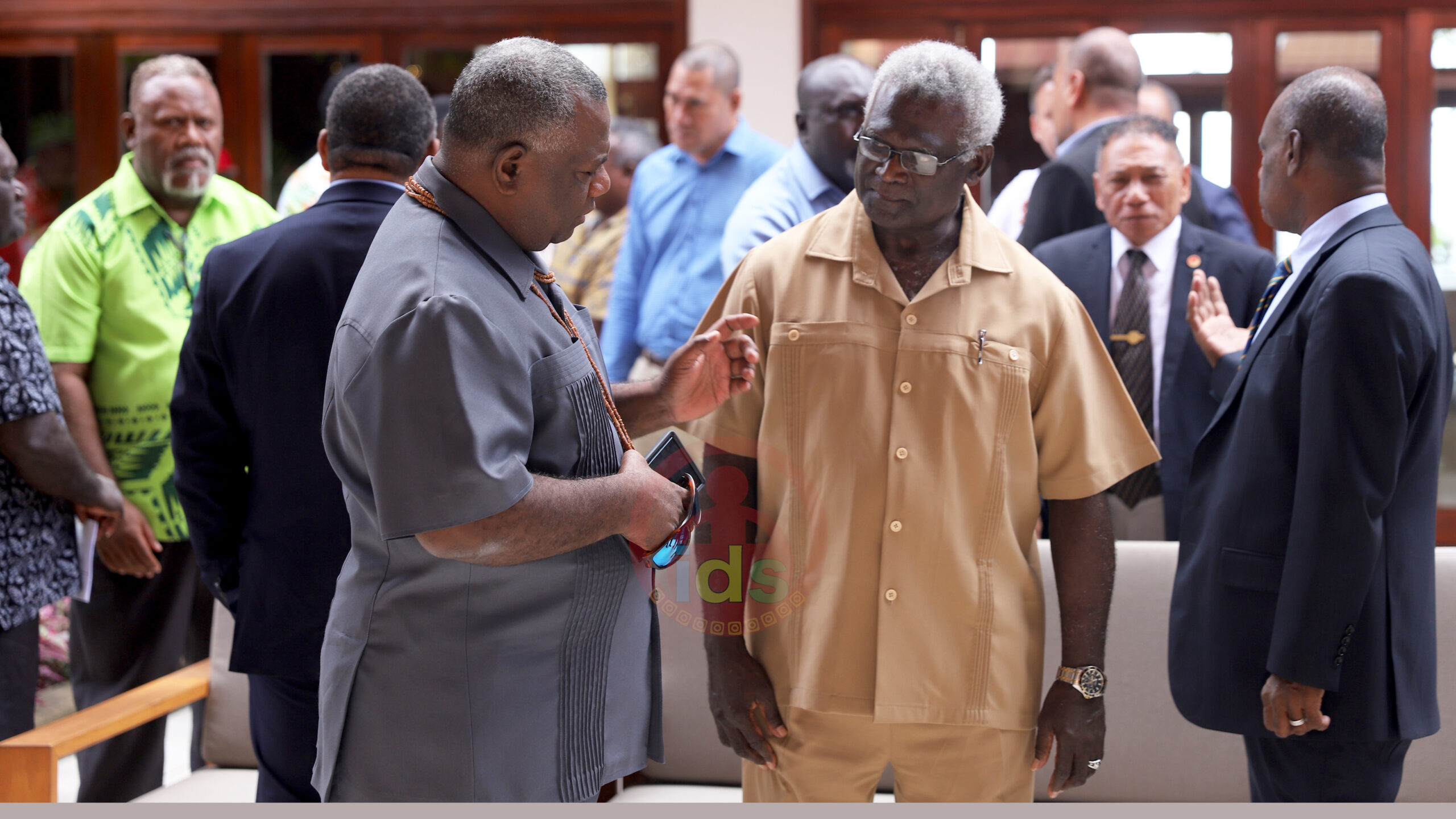
The economic trajectory and pervasive web of corruption in the Solomon Islands is deeply concerning, Finance minister Manasseh Sogavare says.
Speaking during the launch of a two-day National Economic Summit last week, Sogavare said he was “disturbed” and “uncomfortable” with the current trends.
“If the country maintains a GDP growth rate of 3.2% from 2024 to 2050, Solomon Islands is unlikely to achieve upper-income status by 2050,” he stressed.
He said the nation’s real GDP growth which had fluctuated, averaging only 2.4% over the past 30 years is a serious concern.
Sogavare, who was the country’s prime minister in the last political term (2019 – 2024), was given the Finance portfolio in the GNUT Government, formed after the April national elections this year.
“I don’t know whether we know that,” he remarked, indicating the country’s awareness gap regarding its economic performance.
He also expressed discomfort with the projected target of achieving a 7% GDP growth rate by 2030.
“I’m very, very uncomfortable with the date of 2030 for the country to attain and sustain a GDP growth of 7%. We must aim higher,” he said.
With the population currently at 756,766 and growing at an alarming rate of 2.2% annually, he warned that failing to achieve and sustain the desired economic growth rate would leave the country “staring down the barrel of absolute poverty.”

Government Top Officials and Development partners during the National Economic Summit, last week. Credits: IDS News.
The minister further said that natural and man-made disasters over the past 46 years should serve as lessons and stepping stones for economic growth.
“We should learn from all these,” he added.
In addition to economic growth concerns, Sogavare was alarmed by the high rate of corruption in the country, which he said significantly hampers economic progress.
Solomon Islands ranked 104 out of 140 countries on the Corruption Perception Index (CPI).
Sogavare said this is very concerning.
“We can talk about all of these good things but we cannot sideline that enemy and ignore it.
“We must take it seriously because it determines whether investors will come to invest in this country or not.”
He warned of the necessity of ongoing reforms to combat corruption, stating, “As part of the reform that the government is pursuing, we will take determined steps to work with relevant authorities to address the specific areas where our governance system is vulnerable to corrupt practices. We are also strengthening the Office of the Auditor General.”
Sogavare highlighted several key areas of government reform, including fisheries, forestry, mineral resources, agriculture, lands, and tourism sectors.
He described the forestry sector as a “sunset industry” being replaced by the mining sector, which he termed a “sunrise industry.”
He noted the untapped potential in fisheries, and also in seaweed farming across the nation’s lagoons.
The minister stressed the importance of sustainable and environmentally friendly developments, questioning why the country is still exporting raw round logs instead of implementing value-added downstream processing.
“What is stopping us from enforcing the 8% quota for real and serious downstream processing and value-added that cabinet and government already passed in parliament?
“What is stopping us from replicating the Eagon and KFPL models in other provinces as a strategy to address the crucial issue of sustainable and environment-friendly development of fast-depleting ecological forests?” he asked.
Sogavare reiterated the significance of the mining sector as a central part of the regulatory framework guiding the operations of mining companies in the Solomon Islands, affirming its role as a key industry for the nation’s future economic development.
He reiterated the GNUT government’s seriousness about its reforms and is confident that it will achieve what the recent summit will come up with.
“We need to foster close collaboration between the government and private sectors to work on a national economic plan that would be tailored towards formulating policies for sustainable economic growth.”
“I am confident because we have identified our problems, and now we targeted those areas to address. So after this summit, we will come up with a budget that will address our identified problems.”
Meanwhile Prime Minister Jeremiah Manele said, the outcome of the summit will produce a clear policy direction to help the Government implement measures and to prioritize resources over the short to-medium term to achieve higher rates of sustainable growth in the post-pandemic recovery.
“This summit serves as a platform to present and summarize the current economic situation of
our country, identify barriers that hinder productive growth, and collectively develop actionable
strategies that will address these barriers and pave the way for transformative, sustainable
socio-economic growth and inclusive development,” Manele said.
“I therefore call on all of us to work together and enhance collaborative partnership from all of
us going forward, to ensure the outcomes of this summit is actioned,” the Prime Minister
added.
Sogavare served as the prime minister of Solomon Islands for a total of nine years from 2000–2001, 2006–2007, 2014–2017, and 2019–2024.
He has been Member of Parliament for East Choiseul since 1997.
